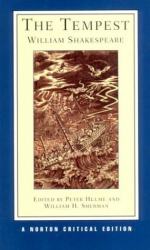|
This section contains 11,206 words (approx. 38 pages at 300 words per page) |

|
SOURCE: "Dream, Vision, Prayer: The Tempest" in Shakespeare's Use of Dream and Vision, Rowman and Littlefield, 1977, pp. 173-202.
In the following essay, Arthos examines the metaphysical and spiritual principles implicit in the dramatic action of The Tempest. He looks closely at aspects of the play that compare life to a dream in which the dreamer is powerless and uncomprehending, and concludes that of all the characters only Prospero accepts the reality that freedom is an illusion and that the mysterious forces which redeem humankind are inef fable.
From the first, watching the spectacular storm and the crazed behavior of those aboard the ship, we are not moved as we might expect to be by drama in which the representation is so vivid. There is a great 'noise' that should be drowning every voice, yet as the sailors and passengers curse and pray and even jest their words come...
|
This section contains 11,206 words (approx. 38 pages at 300 words per page) |

|


